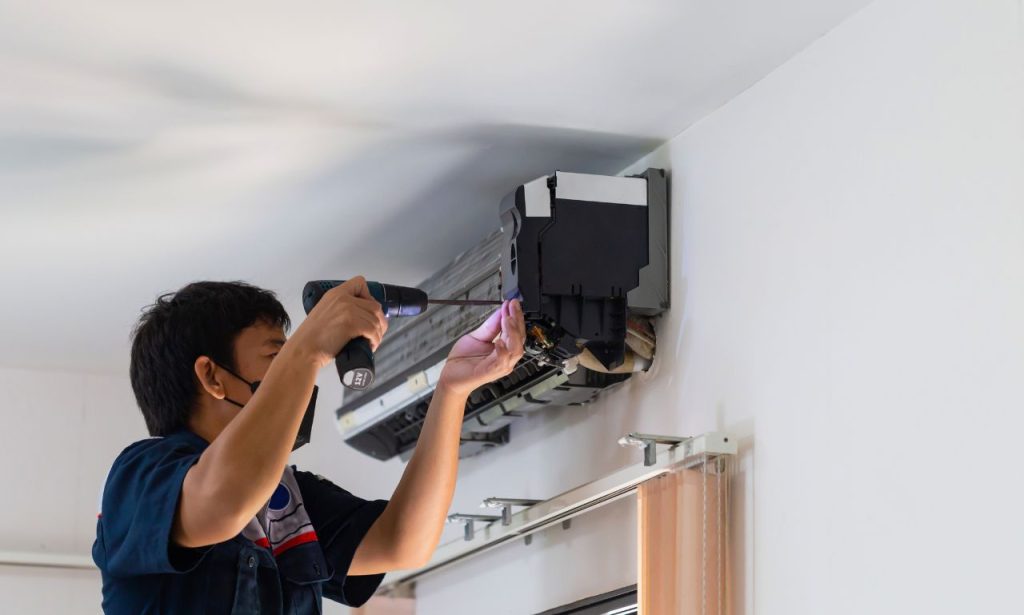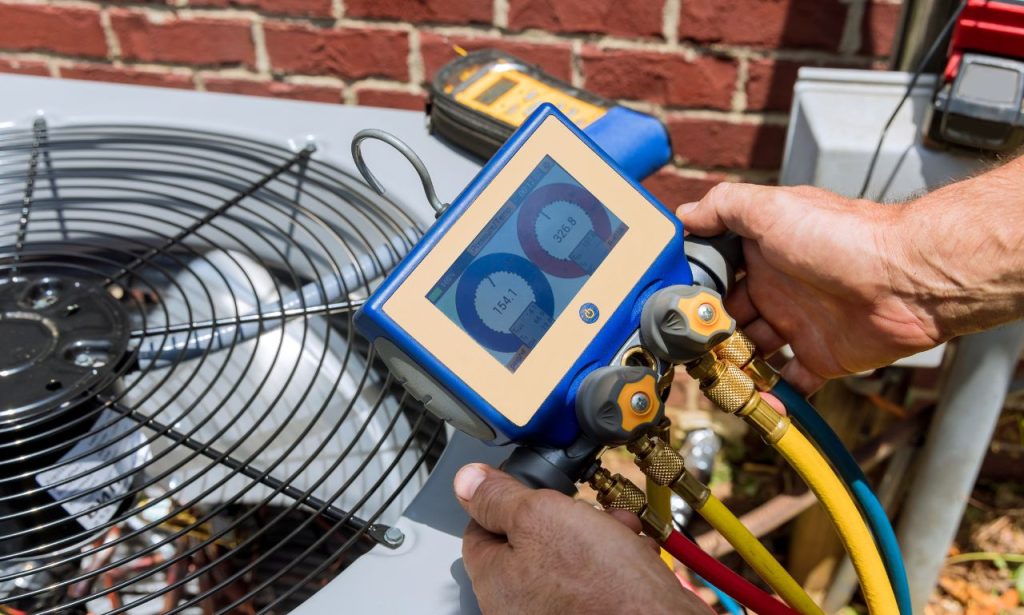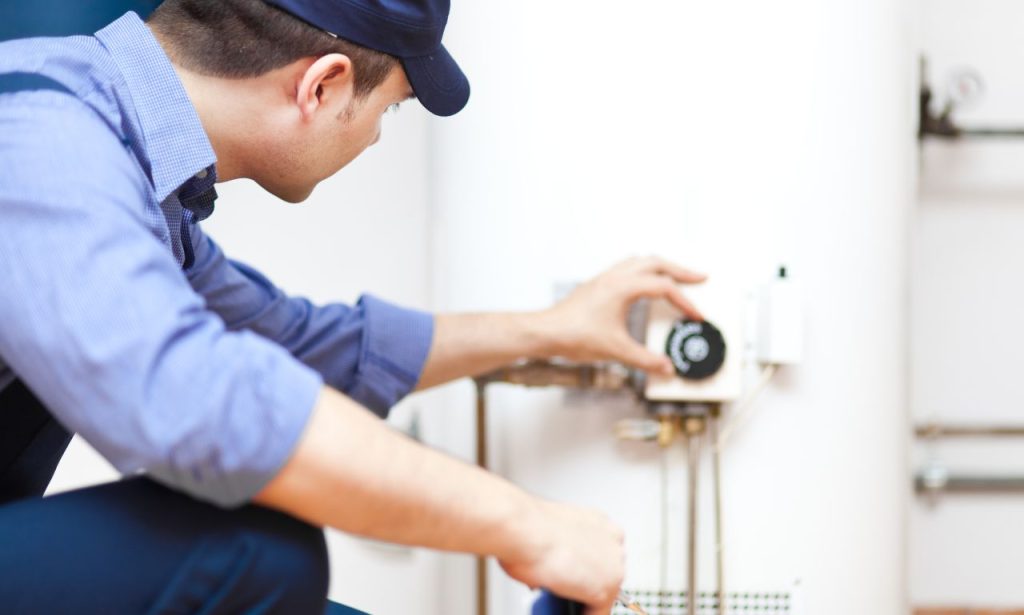This isn’t just about comfort; it’s about maximizing efficiency, saving money, and extending the lifespan of your cooling companion. This is where understanding what AC maintenance include becomes crucial. Regular AC maintenance is just as essential, ensuring your system runs smoothly and efficiently for years to come.
This isn’t just a quick glance under the hood; it’s about delving deep into the heart of your AC system. We’re talking about a comprehensive checkup that goes beyond the surface, tackling potential issues before they snowball into expensive repairs.
So, buckle up as we embark on a journey to demystify AC maintenance, equipping you with the knowledge to keep your cool, no matter how high the mercury climbs.
The Crucial Role of AC Maintenance
Imagine this: it’s the peak of summer, the sun is blazing, and your AC unit decides to take an unannounced vacation. Not a pretty picture, is it? This is where regular AC maintenance steps in as your shield against discomfort and unexpected breakdowns.
Think of it as preventative healthcare for your AC unit. Just like regular doctor visits can catch health issues early on, routine AC maintenance identifies and addresses minor problems before they escalate into major (and costly) headaches.
But the benefits extend far beyond just preventing breakdowns. Here’s a closer look at why AC maintenance is non-negotiable:
- Peak Performance: A well-maintained AC unit operates at peak efficiency, cooling your home quickly and effectively, even on the hottest days.
- Extended Lifespan: Regular maintenance is like giving your AC unit a fountain of youth, significantly extending its lifespan and saving you the cost of premature replacements.
- Energy Savings: A clean and well-tuned AC system doesn’t have to work as hard to cool your home, translating into lower energy bills and a smaller carbon footprint.
- Improved Air Quality: AC maintenance often includes cleaning or replacing air filters, which are crucial for trapping dust, allergens, and other pollutants, ensuring you breathe clean, healthy air.
- Peace of Mind: Knowing your AC system is in tip-top shape provides invaluable peace of mind, especially during the sweltering summer months.
Routine Inspections

Imagine a detective meticulously combing through a crime scene, searching for clues. That’s essentially what a professional AC technician does during a routine inspection. They’re not just looking for obvious problems; they’re digging deep to uncover hidden issues that could spell trouble down the road.
But what exactly does a comprehensive AC inspection entail? Let’s break it down:
1. Visual Examination: The technician will begin by visually inspecting the entire unit, both indoors and outdoors. This includes checking for:
- Physical Damage: Any signs of wear and tear, rust, corrosion, or damage to the unit’s exterior.
- Debris and Obstructions: Leaves, twigs, dirt, or other debris that may be obstructing airflow around the unit.
- Electrical Connections: Loose or damaged wiring, frayed insulation, or other electrical hazards.
2. Component Check: Next, the technician will move on to inspect the individual components of your AC system, including:
- Thermostat: Verifying its accuracy and ensuring it’s properly calibrated and communicating effectively with the AC unit.
- Condenser Coils: Checking for dirt, debris, or bent fins that can restrict airflow and reduce efficiency.
- Evaporator Coils: Inspecting for similar issues as the condenser coils, as well as any signs of refrigerant leaks.
- Fan Motor: Lubricating the motor, checking for wear and tear, and ensuring it’s operating smoothly and quietly.
- Compressor: Inspecting the heart of the AC system for any signs of damage or malfunction.
- Refrigerant Lines: Checking for leaks or damage that could lead to refrigerant loss.
3. Performance Testing: This is where the technician puts your AC system through its paces, measuring its performance and identifying any potential issues. This typically includes:
- Refrigerant Pressure: Measuring the pressure of the refrigerant to ensure it’s at the optimal level for efficient cooling.
- Airflow: Checking the airflow through the system to ensure it’s adequate and balanced.
- Temperature Differential: Measuring the temperature difference between the air entering and leaving the AC unit to assess its cooling capacity.
How Often Should You Do Inspections?
Just like you wouldn’t wait years between dental checkups, your AC system thrives on regular inspections. But how often is it enough? The general rule of thumb is to schedule professional AC maintenance at least once a year.
However, several factors can influence the ideal frequency for your specific system and needs:
- Usage: If you live in a scorching climate and rely heavily on your AC throughout the year, consider biannual inspections, once in the spring before the cooling season kicks off and once in the fall for a post-summer checkup.
- Age and Condition: Older AC units or those with a history of problems may benefit from more frequent inspections, perhaps twice a year or even quarterly in some cases.
- Manufacturer Recommendations: Always consult your AC unit’s manufacturer’s guidelines for their recommended maintenance schedule.
Remember, prevention is always better than cure. Regular inspections might seem like an unnecessary expense, but they’re a small price to pay for the long-term health, efficiency, and lifespan of your AC system.
What to Expect When the Technician Arrives

The day of your AC inspection doesn’t have to be shrouded in mystery. Knowing what to expect can help you prepare and ensure a smooth and efficient process.
Here’s a glimpse into what typically unfolds during an AC inspection:
1. The Arrival: A qualified HVAC technician will arrive at your doorstep, likely in a company uniform and a vehicle equipped with the necessary tools and equipment.
2. The Briefing: Before diving in, the technician will likely ask you about any specific concerns you might have, any recent issues you’ve experienced with your AC system, and your overall comfort level.
3. The Inspection: The technician will then proceed with the thorough inspection process outlined earlier, meticulously examining each component and aspect of your AC system.
4. The Diagnosis: Once the inspection is complete, the technician will discuss their findings with you, explaining any issues they’ve uncovered, their severity, and the recommended course of action.
5. The Estimate: If repairs or replacements are necessary, the technician will provide you with a detailed estimate outlining the costs involved, allowing you to make an informed decision.
6. The Repair (if needed): With your approval, the technician will proceed with the necessary repairs or replacements, using high-quality parts and industry-standard techniques.
7. The Wrap-Up: After completing the work, the technician will review the repairs with you, answer any questions you might have, and provide you with tips for maintaining your AC system between inspections.
Conclusion
Understanding what AC maintenance include empowers you to take control of your comfort, your energy bills, and the longevity of your AC system. It’s not just about surviving the sweltering summer months; it’s about thriving in a cool, comfortable haven, knowing your AC unit is in capable hands – yours and a qualified HVAC technician’s.
Remember, your AC system is a complex machine that deserves the same care and attention you give to other valuable investments. By embracing regular maintenance, you’re not just investing in your comfort; you’re investing in peace of mind, knowing your cool is always within reach.
ALSO READ: How Do You Troubleshoot a Defective Compressor
FAQs
A: While some tasks, like replacing air filters, can be handled by homeowners, it’s generally recommended to have a qualified HVAC technician perform annual maintenance. They have the expertise, tools, and knowledge to identify and address potential issues that might not be obvious to the untrained eye.
A: Start by asking for recommendations from friends, family, or neighbors. You can also check online directories like Angie’s List or Yelp for reviews and ratings of local HVAC companies. Look for technicians certified by reputable organizations like NATE (North American Technician Excellence).
A: Signs of ductwork problems can include uneven cooling, high energy bills, dusty rooms despite regular cleaning, and whistling or rattling sounds coming from the vents. If you suspect ductwork issues, it’s best to have them inspected and repaired by a qualified HVAC technician.
A: Refrigerant levels should be checked during your annual AC maintenance visit. However, if you suspect a refrigerant leak (e.g., hissing sounds, warm air blowing, ice formation), contact an HVAC technician immediately.
A: Absolutely! Regular AC maintenance, particularly cleaning or replacing air filters, cleaning coils, and ensuring proper drainage, can significantly improve your home’s indoor air quality by removing dust, allergens, and other pollutants.






